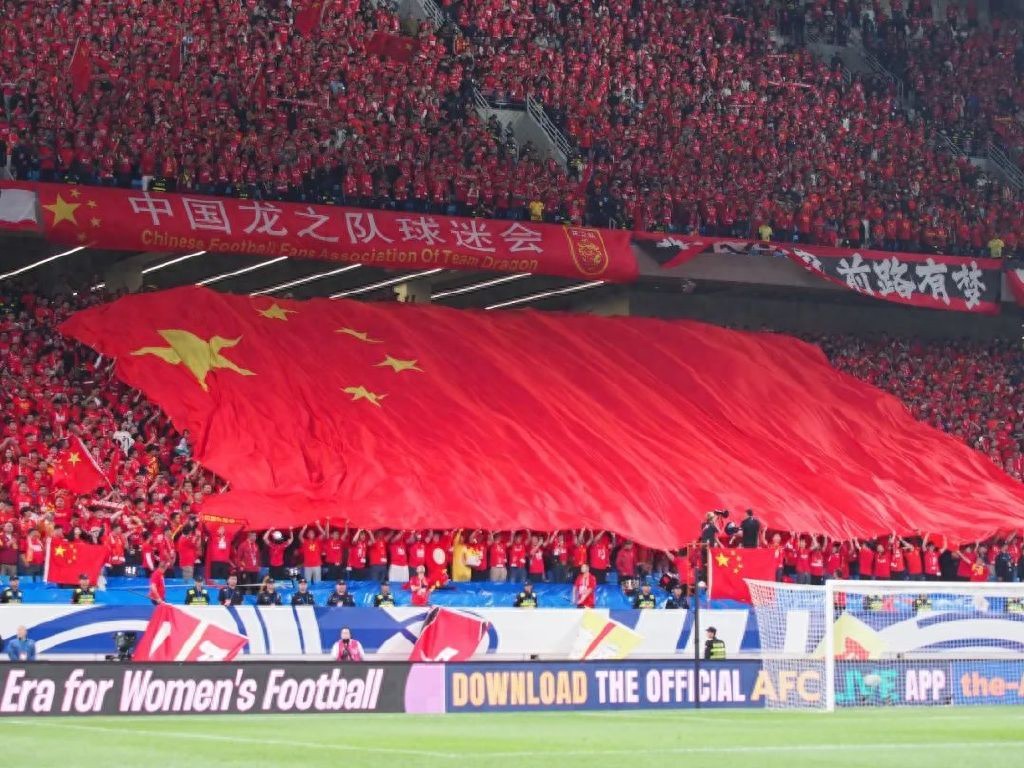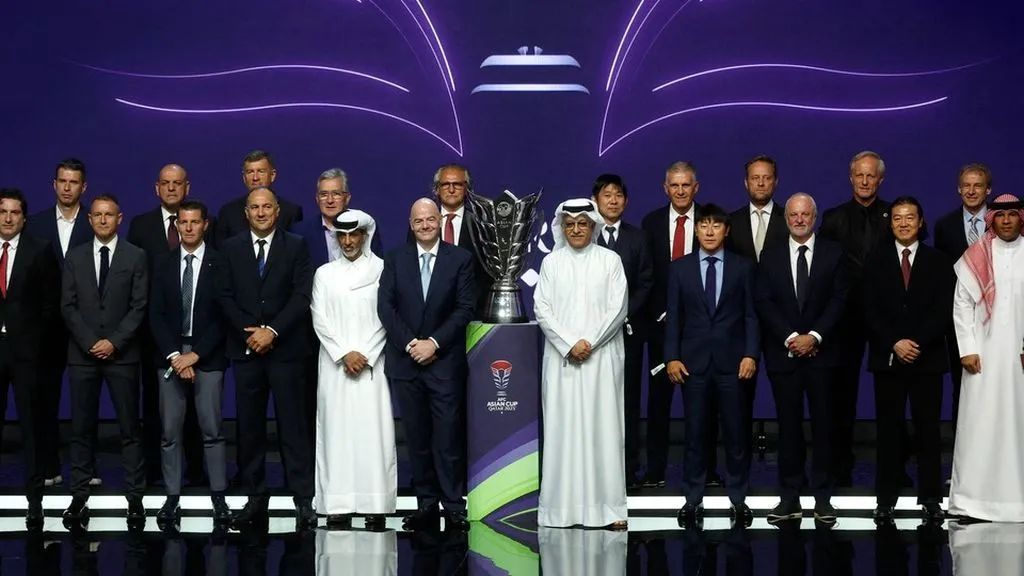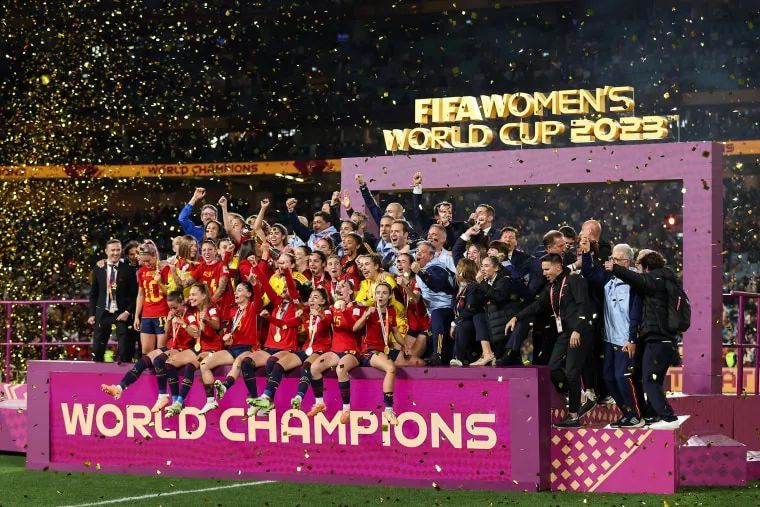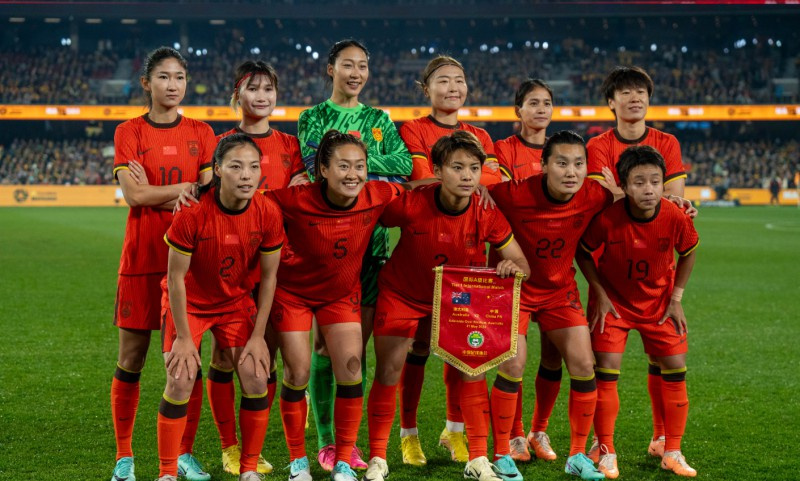Men's Asian Cup or Women's World Cup, the Football Association's bid to host the 2031 tournament chooses one?

The reporter reported coldly Bidding for the above continental football competition is one of the important strategies for the future development of Chinese football. On the one hand, it can be used to host the competition to improve the opportunities and achievements of the men's and women's national football teams, and on the other hand, it can also stimulate the domestic football industry and attract more attention and capital investment. The most recent tournaments that the Chinese Football Association is eligible to bid for are the 2031 Men's Asian Cup and Women's World Cup. The AFC has officially opened the bid process for the 2031 men's Asian Cup, while FIFA has not yet started the bid process for the 2031 Women's World Cup.
For the Chinese Football Association, bidding for the 2031 Men's Asian Cup is less difficult and has a higher success rate, while also stimulating a more mature and demographic domestic men's football industry. The bid to host the 2031 Women's World Cup is an important part of the "Chinese Women's Football Reform and Development Plan (2022-2035)" released in 2022. It is also necessary to make a decision as soon as possible according to the actual situation.


The AFC opened the bid process for the 2031 men's Asian Cup on December 3, and for China, which previously lost the right to host the 2023 men's Asian Cup, in the context of not being able to bid for the men's World Cup in the short term, the bid for the 2031 men's Asian Cup is the latest opportunity to use the football competition to stimulate the football industry, and it can also take this opportunity to repair the relationship with the AFC and improve the competition environment for Chinese football in Asia.
Hosting football competitions above the continental level is one of the important incentives for the future development of Chinese football, which can not only increase the opportunities for the men's national football team to participate in the competition, improve the performance of the competition, but more importantly, promote the recovery and development of the domestic football industry through the competition. In addition to the men's World Cup, the closest in scale and influence is the U20 Men's World Youth Championship, but FIFA recently suddenly expanded the U17 Men's World Junior Championship to 48 teams, changing it to an annual event, and it will be held in Qatar for five consecutive years from 2025 to 2029. The U20 Men's World Junior Championship is likely to be expanded to 48 teams from 2027 onwards, with the possibility of being held in Asia alongside the U17 World Junior Championship.
In contrast, China's bid to host the 2031 men's Asian Cup has a higher success rate. Since 1984, the Asian Cup has basically followed the principle of alternating between East and West Asia, but the 2019-2027 Asian Cup has been held in West Asia for three consecutive years, and the possibility of continuing to be held in West Asia in 2031 is almost zero. At present, the only bidders who have initially expressed their willingness are Uzbekistan, Tajikistan, Kyrgyzstan and India. However, the three Central Asian countries finally decided to bid for the 2035 Asian Cup in July, and South Korea has not yet bid for the 2031 men's Asian Cup after failing to bid for the 2023 men's Asian Cup. Japan is focusing on the 2031 Women's World Cup and has no interest in bidding for the men's Asian Cup. Indonesian media and non-governmental organizations also have the intention of bidding, but they have not yet decided to bid separately, or jointly with Singapore and Malaysia.
In this context, China's bid to host the 2031 Men's Asian Cup has obvious advantages. In the context of the basic return of the Asian Cup to the East Asian region, there is no competition between Japan and South Korea, and as long as China submits a bid, it will be difficult for other competitors who currently have the intention of bidding to succeed. In terms of hardware facilities, there is no difficulty in China's bid to host the men's Asian Cup with 24 teams. The domestic football market can also take advantage of hosting this tournament to get a certain degree of stimulation.

From the perspective of bidding for a high-level football tournament as soon as possible, the 2031 men's Asian Cup is undoubtedly the most likely choice. Of course, it also depends on the attitude of the relevant authorities. After all, it seems that the Football Association seems to be more inclined to bid for world-class football competitions such as the U20 World Youth Championship and the Women's World Cup of all age groups.

With the rapid development of women's football in the world, especially in Europe, in recent years, the influence and commercial value of the Women's World Cup have also risen sharply. The 2023 FIFA Women's World Cup, held in Australia and New Zealand, attracted nearly 1.98 million spectators, and attendance at the 2027 FIFA Women's World Cup in Brazil is expected to increase by at least 50%. Infantino even plans to expand the 2031 Women's World Cup to 48 teams, the same as the men's World Cup, when attendance is expected to more than double the number in 2023. The 2023 Women's World Cup will be watched live by 2 billion people worldwide, and research reports show that this number is expected to exceed 3 billion in 2027 and more than 5 billion in 2031, the same as the 2022 Men's World Cup.
The total prize money for the 2023 Women's World Cup has soared to $110 million from the previous $30 million, and Infantino announced that the total prize money for the 2027 Women's World Cup will be the same as the 2026 Men's World Cup, reaching an unprecedented $896 million. For the first time, the 2023 Women's World Cup rights will be sold separately, after the Women's World Cup rights could only be bundled with the men's World Cup. FIFA began bidding for the rights to broadcast the 2027 Women's World Cup in November, with a target of US$1 billion and is expected to reach US$2 billion in 2031, the same as the 2022 Men's World Cup.

The impact and commercial value of the 2031 Women's World Cup are generally expected to reach the level of the 2022 Men's World Cup. For China, which has not hosted a World Series since the 2008 Beijing Olympics, the global impact of hosting the 2031 Women's World Cup and the commercial value of fans from all over the world will far exceed that of the men's Asian Cup in the same year. Because, the commercial value of the Women's World Cup is not what it used to be, and the competition for bidding is unprecedentedly fierce.
In the "Chinese Women's Football Reform and Development Plan (2022-2035)" released in October 2022, the Chinese Football Association clearly stated that it will actively bid for the 2031 Women's World Cup. In March this year, the Hong Kong Football Association and the Macau Football Association of China successively expressed their desire to jointly bid with the Chinese Football Association, but China's bid to host the 2031 Women's World Cup has Japan, a strong competitor in Asia. Spain in Europe and Morocco in Africa are also interested in bidding, but since Spain-Portugal-Morocco will host the 2030 Men's World Cup, it is unlikely that Spain and Morocco will host the Women's World Cup again after a year.
In March, the U.S.-Mexico duo withdrew from their bid for the 2027 Women's World Cup in favour of 2031, with four other FAs and Ireland also interested in bidding. Given that Europe and North America are the world's most important markets for women's football, these countries will be China's strongest competitors in the bid. The factor that is slightly more favorable for China is that the 2027 Women's World Cup will be held in Brazil, and the next one is unlikely to continue in the Western Hemisphere.
Bids for the 2031 Women's World Cup were originally scheduled to start in the second half of this year, with the results announced at the FIFA Congress next summer. However, to date, FIFA has not started the bidding process. There is still time for the relevant authorities to consider the selection of bids for the Women's World Cup and the Men's Asian Cup, but this time is not much, and if they are interested in bidding, the Football Association will have to clarify its goals and quickly enter the bidding process at least before the first half of next year.



Wonderfulshortvideo
Did you get it? 🤔😅


Haaland’s movement 🥵


Which counterattack is


When you use your girlfriends shower 🚿 @Emily Bourne @LUSH


Neymar highlights neymar edit neymar lamine yamal celebration


Arsenal 1-0 chelsea havertz goal


Lamine Yamal wizardry 🪄








 Links
Links
 Contact
Contact
 App
App


